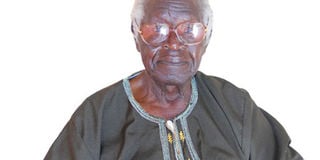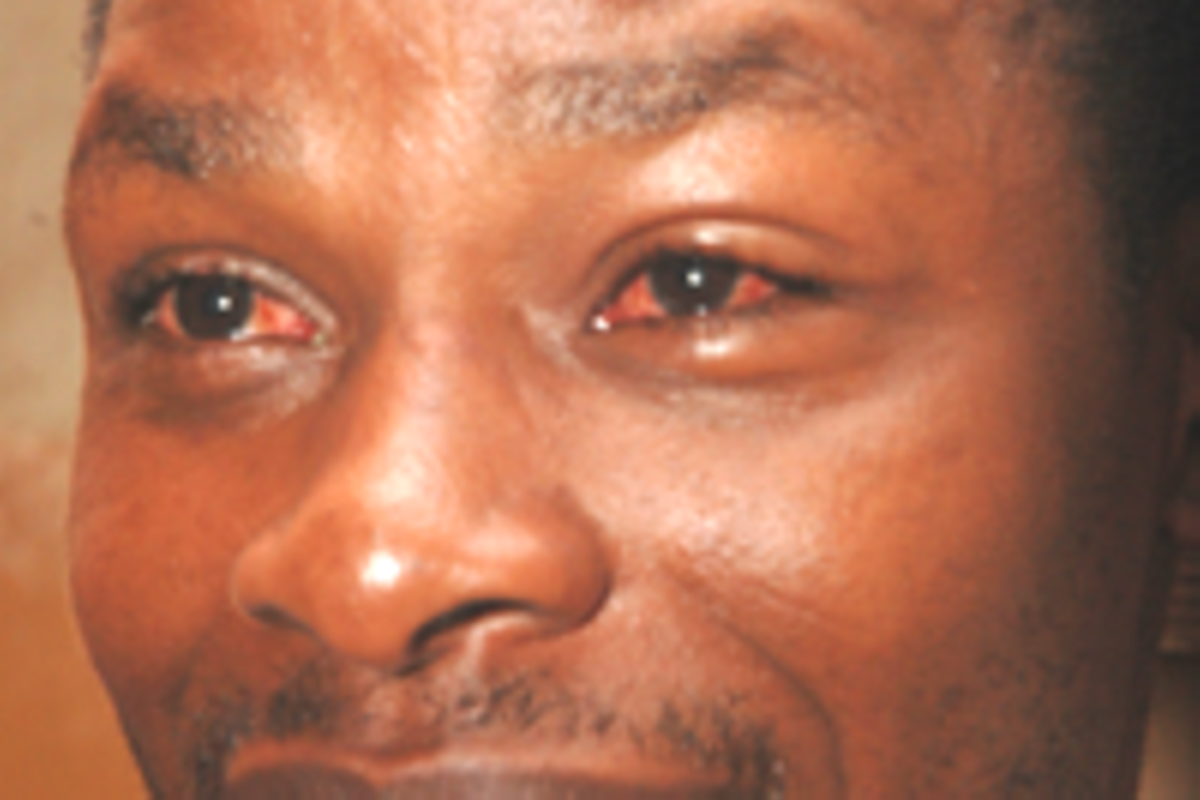Former ‘president’ Wacha Olwol dies

Mzee Joel Hunter Wacha-Olwol
What you need to know:
Born in November 1923 to Erieza Olwol and Cakaya Akulo in Loro Sub-county, Atura County now in Oyam district, Wacha-Olwol later relocated to Corner Amach in Lira district.
He is survived by 12 children.
Mzee Joel Hunter Wacha-Olwol, a former member of the Presidential Commission of Uganda, is dead.
According to Betty Amongi, Minister for Lands, Housing and Urban Development, Wacha-Olwol died at Kadic Hospital in Kampala. By time of filling this news his body was being transferred to Mulago Hospital for autopsy. He was 93.
Wacha-Olwol was a member and head of the three-man Presidential Commission that governed the affairs of the state of Uganda between May 22 and December 15, 1980. This was after the Military Commission headed by Paulo Muwanga and deputised by Yoweri Museveni overthrew the government of President Godfrey Binaisa.
The other members of the presidential commission were Justices Saulo Musoke and Polycarp Nyamuchoncho. It is this commission that handed over power to President Milton Obote after the controversial December 12, 1980 general elections.
Wacha-Olwol started out his career as a teacher at a rehabilitation centre in Lira, before joining the then Lango African Local Government at the beginning of 1953 as a clerk to the Lango District council. After his studies in the United Kingdom from where he graduated with a Diploma in Social and Public Administration, he was appointed the district council secretary.
He was later elected on the delegation from Lango that attended the two constitution conferences in London that paved the way for Uganda's Independence in 1962.
Wacha-Olwol was moved from Lango to Kitgum in August 1963 as an assistant district commissioner for Kitgum before replacing the late Oboth Ofumbi as district commissioner for Acholi. Ofumbi had been transferred to Entebbe as secretary to the cabinet from where he would become a cabinet minister during the Amin government. Ofumbi was together with another minister Lt. Col Erinayo Oryema and Archbishop Janani Luwum killed in February 1977.
In 1966 Wacha-Olwol was promoted to the post of principal assistant secretary in the Ministry of Local Government, working as local administration inspector. After a year he joined the Office of the President at Entebbe as an administrator. In 1968, he was promoted to secretary for administration in the President's Office, a position he held until 1972 when he was retired by the Amin government.
After retirement, Wacha-Olwol went into private business in Lira Town until 1977 when he ran into exile following the death of Archbishop Luwum and the two cabinet ministers. It was widely believed that he would be one of the next targets of the Amin government that was increasingly becoming paranoid of people suspected to be supporters of Milton Obote, the man Amin had toppled in 1971.
Wacha-Olwol stayed in exile in Kenya until after the fall of Amin in April 1979. He is said to have recruited some Ugandans in Kenya to go and join the liberation war in Tanzania.
It was in May 1980 that Wacha-Olwol was appointed to join the two justices Polycarp Nyamuchocho and Saulo Musoke as members of the presidential commission, the titular head of state that handed over power to Obote in December 1980. Together with the two, Wacha-Olwol ruled Uganda for eight months.
The commission oversaw the day-to-day running of the government ministries and signed legal documents as co-presidents.
After the 1980 elections, the new UPC government brought back Wacha-Olwol into civil service, working as chairman Uganda Advisory Board of Trade until the board was dissolved in 1986.
Born in November 1923 to Erieza Olwol and Cakaya Akulo in Loro Sub-county, Atura County now in Oyam district, Wacha-Olwol later relocated to Corner Amach in Lira district.
He went to Loro Preparatory School from where he joined Loro Elementary School between 1932 and 1935. He later joined Boroboro Central School from 1936 to 1938. Boroboro was the only academic centre in the whole of Lango District, with only two classes.
Wacha-Olwol then joined Kabalega Junior, now secondary school, from where he was admitted at Kings College Budo in 1942 for his Senior Four and six until 1944.
At Budo, Wacha-Olwol was a classmate of Kabaka Edward Muteesa of Buganda, who also became ceremonial president of Uganda between 1963 and 1966. During their time at Budo, Yusuf Kironde Lule, who would also become president of Uganda, was one of their teachers.
From Budo, Wacha-Olwol went to Mukono Teacher Training College from 1945 where he graduated as a primary school teacher and later did a diploma in Social and Public Administration in the United Kingdom.
He is survived by 12 children.




